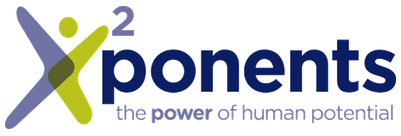Aug 27, 2013 3:55:51 PM
When twenty strangers met on Whidby Island this past week, it was as if they were representing the world as a whole. By that I mean, when you get enough people together the fullness of what it means to be human comes along for the ride. There were those suffering from loss, enamored with new loves, transitioning to a new life-stage, and warriors who were transcending challenging situations. I was reminded of how we are as different as we are alike. While these twenty started out as nameless faces, once I heard their stories they moved into my circle rather than remaining in the never ending sea of unknown others.
I met these others to learn and practice group process in the form of circle, world cafe, and open space. We spent 4-plus days together, and before we dispersed we were becoming friends. One of the tools we used that allowed us to quickly come together was the development of circle agreements. I have used agreements for many years in coaching, partnering, and group settings. I was reminded again of the importance of taking the time to discuss and commit to how we will be with one another. This was no exception. While there are four agreements that Christina Baldwin and Ann Linnea use as a base for The Circle Way, it was apparent once again that we all interpret and translate words and experiences differently. The Circle Way agreements are:
- Stories we share in circle are confidential.
- We listen with compassion and curiosity.
- We ask each other for what we need and offer what we can.
- From time to time we pause to re-gather our thoughts or focus.
By having agreements with each other, and spending time ensuring we are aligned on our collective interpretation, we can more effectively manage assumptions. For myself, I find that making assumptions about others can trigger me, and if I am not aware and present, those triggers can create unhealthy conflict. I may stop seeing others as people and begin to see them as obstacles to getting what I think I want or need. The primary reason conflict exists is because of our differences in personalities, preferences, and styles. Strong agreements make space for those differences and become a resource we can use to expand our world view, they help us with conflict management. This expanded view gives us more to create from. Agreements also help us engage in conflict without making it personal.
Learning these lessons about how to work with partners or in teams has not always come easily for me. In many ways I am much more comfortable being the “lone wolf,” rather than hanging with the pack. One can move more nimbly when one moves alone. To further complicate how I operate in group settings, my personality-type longs to move into action. I get impatient. I have spent years practicing ways to slow my internal clock down long enough to sense and explore the many facets and complexities that I don’t always access. And there is more! For the sake of full-disclosure, and I’m a bit embarrassed to admit this part, I have to work at staying present because I might stop listening when I already know the answer.
These traits can (I am sure my husband will attest to this) be infuriating to others in my circle. I have learned to practice compassion toward myself and I accept these parts of me because I know them. I am an activator (StrengthFinders). I am intuitive and can see the themes and connections to the bigger picture (ENTJ). These parts of myself make me great, and they also come with a shadow. If I believe my way is better, then my bias for action may marginalize the value of careful planning. If I am unaware of the full spectrum I bring with me to the circle, my shadow-side may take a bigger seat at the rim then it should and throw the group out of balance. Each of us carries our light to every circle we participate in, those seeds of greatness that are woven into our very DNA and that serve our individual and collective vision and purpose. But with that light also comes the shadow that it casts. When we come together, our agreements create a structure that allows us to shine in to the center all the talent and strengths that we bring to the group’s purpose. Our agreements afford us the space to be compassionate with each other as we grow our leadership in ways that make it safe to admit our insecurities and biases.
Ultimately, someone else has just the right amount of light to diminish our own shadow, if only we will be that for each other.
What is your shadow, when it comes to group collaboration?







2 Responses